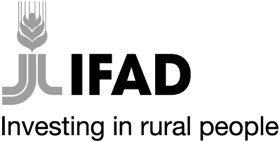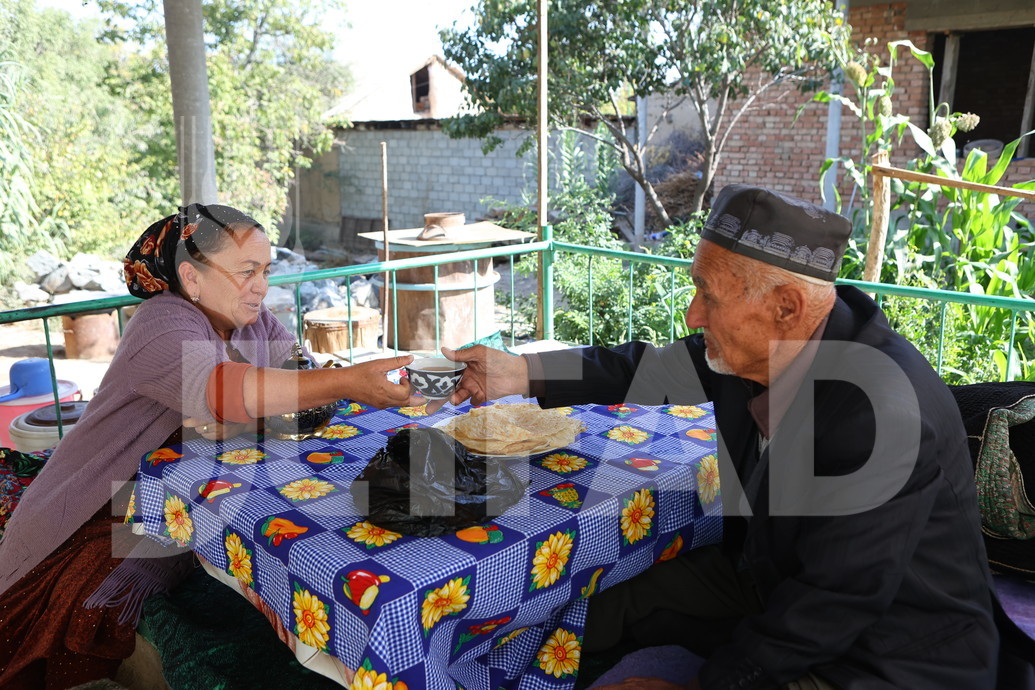| ID: | 85917 |
|---|---|
| Country: | Tajikistan |
| Title: | Tajikistan - Community-based Agricultural Support Project (CASP) - October 2023 |
| Description: |
Gavhar Esanova lives in Ghazantarak Village in the Sugd Region of northern Tajikistan. She is 48 years old, has been married for 25 years and has four children. She works in the home as a housewife and supplements her household income as a tailor. She also looks after her 93-year-old father-in-law. Gavhar’s disability made it difficult for her to carry water. Before CASP implementation, the 1,904 households in Ghazantarak Village did not have easy access to running water. Gavhar’s village organization identified the development of a clean drinking water infrastructure as the top priority in their community development plans. In the past, there were a few community water taps where people queued for up to 5 hours to fill their containers each day. And then they had to walk, sometimes long distances, to carry the water back to their homes. “We use water for everything – drinking, cleaning, gardening. We did not have access to fresh running water before. We could bring water from the community taps, but had to carry it in buckets from quite a distance, and then we had to boil it before drinking it. The tap water we have now is safe to drink. I was always carrying water before. In fact, I would say that I have spent half of my life so far carrying water. Now we have the water tap just in front of the house which makes my work easy,” told Gavhar. Gavhar used to carry water to water a few vegetables she planted in the springtime in her household plot. “Before, in the summer and fall it was quite brown here. But thanks to the project, my garden is very green, even now in late September,” she told. “I have saved food for the winter – we have potatoes, corn and barley and I have canned tomatoes, fruit and compote. In this way, we save a significant amount of money.” In the past, people paid 160 somoni (US$1 = 10 somoni) for a 7 metric tons tank of water delivered by truck to supplement the water they got from the community tap. Each tank lasted for about a month. In the four months since the tap was installed, Gavhar estimates that her household has saved 700 somoni ($70) on water and more than 1,500 somoni on food. The CASP project bored two wells located 3 km away from the village and laid 18 km of pipeline to construct a running water system within the village. Each tap installed by the project serves four adjacent households, providing access to water for four hours every second day. They fill their household water tanks and can also use it for their livestock and to water their garden plots. But now, instead of paying 160 somoni (about $16) per month to buy trucked water, they pay only 10 somoni per month to access the running water from the tap located just in front of their houses. In the future, Gavhar wants to plant more fruit trees and construct a small greenhouse where she can plant tomatoes and other vegetables even in winter. “I would like to thank the project for the support. It has really made our life easier.” The Community-based Agriculture Support Project (CASP) stimulates inclusive economic growth and poverty reduction in rural Tajikistan. Its activities help communities and dehkan (smallholder) family farmers access productive infrastructure and services, leading to sustainable agricultural production, equitable income-generating opportunities, and improved living standards. CASP works with village organizations (VOs) to develop community-driven action plans that define their own improvement initiatives. Village-level participation in decision making is critical to the success of these plans and helps establish a sense of community ownership and cohesion. |
| Size: | 7.73 MB; 5472 x 3648 pixels; 463 x 309 mm (print at 300 DPI); 1448 x 965 mm (screen at 96 DPI); |
| Show more details: | Didor Sadulloev |
| Copyright: | © IFAD/ Didor Sadulloev |
| Categories: | New from Near East, North Africa, Europe and Central Asia |

